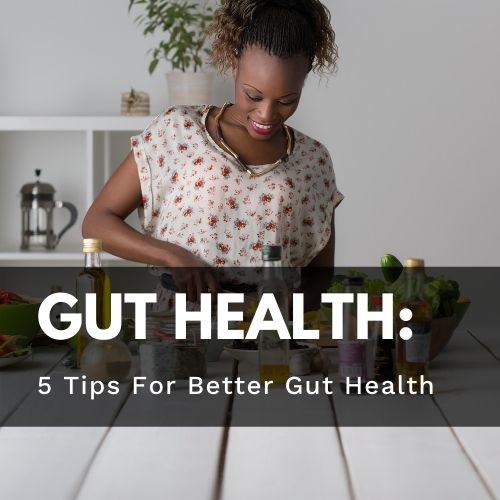Your Cart is Empty
COLLECTIONS:
SPECIAL OFFERS:
LEARN:

The Benefits of Non-REM sleep
January 26, 2018 7 min read
We are all familiar with the fact that there are different stages of sleep and that each stage is important for our bodies - but did you know that certain types of sleep help us to recover better?
This type of sleep is called "non-REM sleep" (also called "nREM").
While non-REM sleep may not be as popular as REM sleep, it is just as important.
The benefits of non-REM sleep include the release of testosterone and growth hormone, two key hormones involved in restoring your body. Along with these benefits, non-REM sleep assists your body in many other ways.
Read more below about the benefits of non-REM sleep and how you can boost your non-REM sleep at night!
What is non-REM sleep?
As a sleep researcher, I know too much about non-REM sleep to give a simplified definition. Thankfully, the Oxford English Dictionary has an accurate and simple definition of nREM that I will expand on in this article:
“Non-REM sleep is the dominant kind of sleep, when brain activity is much reduced and there is no dreaming."
While this definition is easy to understand, you may be asking, how does a lack of brain activity equate to better recovery and performance? How does nothing give you something of value?
Isaac Newton once said, "for every reaction, there is an equal and opposite reaction." Sleep is no exception to the laws of nature.
For every minute that our brains are awake and our bodies are moving, our brains should be "inactive" and our bodies should be immobile. This is exactly what the sleep cycle and stages of sleep are for. This is how our bodies are restored.
Download our free Sleep Diary here!
Specifically, during non-REM sleep, the nerve cells in our brain take turns going "offline" - stopping communication with other nerve cells. At the same time, the cells in our body rebuild themselves, replenishing sugar, fats, and salts for the next day of use.
This is the purpose of non-REM sleep. Building your body up after a long day of tearing it down.
This restorative sleep (nREM) is critical for our bodies. Hence, this is why 85% of our time asleep at night is spent in non-REM sleep.
Keep in mind, that for athletes looking to increase recovery, stage 3 of nREM sleep is the most important. This is when growth hormone (HGH) and testosterone are released. We'll detail that below.

Two Key Benefits of non-REM Sleep:
1. Growth Hormone Release:
Here’s a surprising fact. Our bodies release muscle building hormones, such as human growth hormone and testosterone, when we sleep. Specifically, the release of growth hormone is triggered by nREM sleep.
Every time I tell an athlete that non-REM sleep activates the release of growth hormone, I get questions. Everyone seems to be interested in recovering better!
Contrary to popular belief, your body doesnot release growth hormone and testosterone directly after a high-intensity workout or sweat session. Your body releases growth hormoneat night when you are in non-REM sleep, especially stage 3 non-REM sleep (see chart above).
What happens if you only sleep for four hours and not the recommended eight hours? Your body will only release half the amount of muscle-building hormones, as shown in a famous study in The Lancet.
Ladies, we also release testosterone to help build lean muscle: there is a single cell factor (termed 'enzyme') that converts estrogen into testosterone and testosterone into estrogen.
Also, the more active you are, the more testosterone you release. So there you have it, your blueprint for building lean muscle and losing body fat is to get a full night’s sleep (8.4 hours is ideal)!
If you struggle with sleeping at night, check out Utzy's natural sleep aids. You can get 50% off your first bottle!
I have some tips below on how to increase your nREM sleep, read on.
2. Physical Restoration:
Non-REM sleep is important for all types of physical restoration, not just for building muscle. non-REM sleep also triggers the release of many different cell factors in our body to be ready for the next day; the kidneys will replenish salt stores, the brain and muscles replenish sugar and fat stores, and so on.
Even if you don't have a stressful everyday lifestyle, being awake is stressful on the body in and of itself. We build up waste products in our brains and bodies at the expense of being awake, and we use sleep to literally flush out these waste products, especially from the brain.
This is exactly what happens during 85% of our time asleep. Get rejuvenated and recover better with the recommended 8.4 hours of sleep at night.
Stages of non-REM Sleep:
There are three stages of non-REM sleep that we cycle through across the night. We enter sleep in non-REM sleep and spend most of the night in non-REM sleep.
We finish sleep with REM sleep (typically) but will still cycle in and out of non-REM sleep and REM sleep during the wee hours of the morning.
See the chart below to help visualize your sleep cycle.

Stage 1 (nREM).
This is the lightest stage of non-REM sleep. We enter sleep in stage 1. If we happen to doze off in class or in the afternoon, we enter our daze in stage 1 non-REM sleep. Buddhist monks are often said to have brain activity reminiscent of stage 1 non-REM sleep at many points of the day.
A brain state reminiscent of stage 1 non-REM sleep can be achieved over time with routine practices of mindfulness. There is some but not much physical restoration during stage 1 non-REM sleep. Stage 1 non-REM sleep is more of a gateway to deeper, restorative stages of sleep.
Stage 2 (nREM).
During stage 2 non-REM sleep, we start to lose awareness of our surrounding environment. Stage 2 non-REM sleep is famous for the appearance of "K-complexes" on brain activity read-outs. K-Complexes were discovered in the lab from when a research assistant 'K-nocked' on the door of a sleep participant.
Again, there is not a significant amount of physical restoration during stage 2 non-REM sleep but yes, nerve cells in the brain do take turns going "offline" during this time. The physical restoration process begins in the body.
Stage 3 (nREM).
This is the deepest stage of sleep.This is the stage of non-REM sleep with the most physical restoration. The brain is mostly shut off from the surrounding environment.
Our bodies release muscle-building hormones, clear waste products, resupply energy stores, and make our bodies ready to go for the next day. This is the stage of sleep that we should make a priority.
REM Sleep (Stage 4).
What nREM is to physical health, REM is to mental health. REM sleep (rapid eye movement) is the most important stage of sleep for your brain. This is the stage of sleep when your brain becomes highly active. This is the stage of sleep were your will start to dream. You can read my in-depth article on REM sleep here.
REM Sleep vs. Non-REM Sleep:
The second type of sleep is Rapid Eye-Movement (REM) sleep. In pop culture, REM sleep is talked about much more than NREM sleep. This due to the fact that REM sleep is the only time of the night when we dream (which is fascinating in and of itself!).
You can read our in-depth article on REM sleep here.
While non-REM sleep is critical for physical restoration, REM sleep is critical for mental restoration. REM sleep is necessary for us to remember facts and skills that we just learned and for repeating this information the next day.
Non-REM sleep is for physical health, and REM sleep is for brain health. It’s that simple. We cycle in and out of non-REM and REM sleep across the night, restoring and preserving our physical and mental health in the process!

How To Increase non-REM sleep:
Getting enough non-REM sleep is important for optimal health and wellness. Below are are couple of tips for increasing non-REM sleep. In addition to these tips, I also reccoment tracking your sleep. You can use this free sleep diary that I created to be used at home.
•Eat Greens
Science is constantly proving that “we are what we eat.” Prioritizing greens, healthy grains, fats, and proteins throughout the day stabilizes the body’s blood sugar levels.
Eating a low sugar, high protein snack before bed prevents blood sugar levels from spiking during the night, waking us up, and wasting time that could have been spent in non-REM sleep.
Also, a recent study has found that a diet increasing healthy gut bacteria (e.g., prebiotics, probiotics) promotes non-REM sleep (Source).
•Avoid Light at Night
Light emitted from cell phones, tablets, and HDTVs actively suppresses the release of melatonin: “the hormone of darkness”. Melatonin is released to help us fall asleep and stayasleep, maximizing our time in non-REM sleep. Melatonin release is extremely sensitive to LED light.
Put away your technology at night and read a book as you get ready to sleep at night. Your relaxed, calm brain will thank me.
•Take Magnesium
Most people are magnesium-deficient and need to supplement. In fact, research shows that half of the US population is deficient. Magnesium, particularly Magnesium Carbonate, slightly elevates levels of carbon dioxide in our blood. This reaction tricks our brain into thinking it should be asleep.
Magnesium may also reduce the chance that you’ll experience restless legs syndrome (i.e. leg twitching at night due to fatigue) and wake up because of it.
If you aren’t getting enough Magnesium, you can supplement with a high quality product like Utzy’s U-Mag. It’s inexpensive to take and insures that you get enough Magnesium every day. Did I mentioned it is flavored with Organic lemon and takes delicious? Check it out here.
To wrap this article up my simple advice is this: do whatever you can to achieve the golden 8.4 hours of sleep per night. That's over six hours of physical restoration from non-REM sleep! Your body will thank you.
Whether it's through taking a natural sleep aid (save 50% off your first bottle!) or through creating a better sleep environment, make sure to get those extra hours of sleep!
______________________________________________________________________________

Dr. Allison Brager is a neuroscientist specializing in the physiology and genetics of sleep and performance. She is author of Meathead: Unraveling the Athletic Brain, which debunks the myth of the "dumb jock" and serves as a manual for optimizing athletic performance through neuroscience. Outside of the laboratory, she is a former college athlete, Crossfit Games team athlete, and is still active in track and field: pole vault and hurdles.
Other Resources for Optimizing Sleep:
1. My book, “Meathead: Unraveling the Athletic Brain” describes several "neurohackers" for bettering athletic performance through science.
2. Podcast on How to 10x Your Sleep.
Leave a comment
Comments will be approved before showing up.
Also in Utzy's Sleep Blog
Subscribe
Sign up to get the latest on sales, new releases and more …
Join the Utzy Naturals Club!
Sign up and get the latest on sales, new releases, and more...










